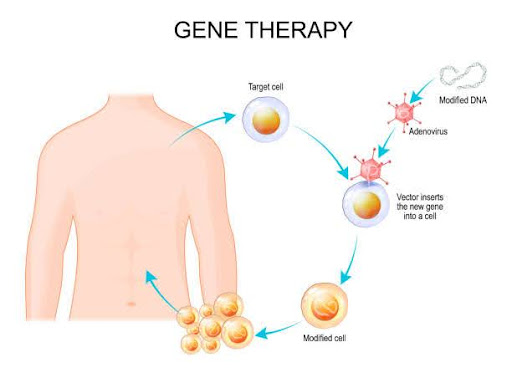Somatic Cell Gene Therapy: A Breakthrough in Personalized Medicine
This therapy made possible by somatic cells is one of the biggest improvements in modern medicine for treating diseases linked to genes. Traditional therapies do not often fix the cause but focus only on symptoms, but somatic cell gene therapy corrects the problem by changing specific genes inside a person’s cells. This innovative approach is both influencing personalized medicine and supporting the cure of diseases that resisted other treatments.
Explaining what Somatic Cell Gene Therapy is
At the heart of somatic cell gene therapy is the work of changing the genes in our own somatic (non-reproductive) cells. That is, genetic changes surgically made in a patient don’t affect their offspring, so it is different from the other kind of gene therapy. Therapy focused on somatic cells is used to fix faulty genes in the body, returning cells to healthy function and giving relief that lasts over time.
First, doctors take out a patient’s cells, insert a perfect copy of the flawed gene or edit the original one and finally give the modified cells back to the patient’s body. Using this approach helps keep systemic side effects down and allows the treatment to work more effectively.
The Way Somatic Cell Gene Therapy Is Involved in Personalized Medicine

Personalized medicine aims to match healthcare choices to each patient’s genetic makeup, how they live and where they live. This approach is completed by delivering somatic cell gene therapy which allows therapies made to match each patient’s unique genes. Because of this commitment to personalization, people feel better, experience fewer harmful responses and healthcare resources are put to good use.
Treating cystic fibrosis, sickle cell anemia and specific types of cancer with somatic cell gene therapy may fix the disease at its source and give patients a more effective outcome than just using medicine for symptoms. Unlike other therapies, this one takes on the qualities of personalized medicine by planning treatments using a patient’s DNA analysis.
Improvements are Moving Forward Progress in Somatic Cell Gene Therapy
Advances in technology have recently speeded up both the production of and the use of somatic cell gene therapy. The use of CRISPR-Cas9 makes it possible to change particular DNA sequences with greater care and success than ever before. So, people find therapies more secure, as fewer unwanted effects affect them.
In addition, using viral vectors to deliver treatment genes to important body cells has seen great progress. Content can now be delivered more safely and in greater quantities by improved vectors which also reduces the immune responses seen in previous trials.
Thanks to these scientific strides, a wide range of new diseases can now be treated and it is easier to develop meaningful gene therapies for every patient.
How Clinical Services Operate and Successful Cases

So far, somatic gene therapy has advanced a lot and now gives patients with genetic and acquired diseases treatment options that were not available before. For illnesses inherited by blood such as beta-thalassemia and sickle cell disease, correcting the mutations in hematopoietic stem cells with gene therapy means the amount of hemoglobin increases and the symptoms of the disease decrease.
Researchers have found that somatic cell gene therapy might benefit cancer treatments. CAR-T cell therapy works by editing a patient’s T cells so they are better able to notice and destroy cancer cells. Using this approach, some forms of leukemia and lymphoma are now treated with success, unlike conventional treatment with chemotherapy and radiation.
Other neurodegenerative diseases such as Parkinson’s disease and muscular dystrophy, are being studied, while researchers work to fix the damaged genes in the tissues using gene therapy. They underline how somatic cell gene therapy can change the way many difficult disorders are treated.
Problems and Ethical Matters
Though somatic cell gene therapy shows much promise, several challenges must be worked out for it to be used more widely. These therapies still face the problem of ensuring they offer lasting benefits and do not cause complications from side effects. Effort to prevent these risks should involve strict testing before and after a treatment is given.
Money matters a lot in education. Making each type of personalized gene therapy is complex and costly because each person needs their own unique treatment. Work is in progress to simplify the processing and delivery of these medicines to increase access to them.
People ask about ethics involving who may use somatic cell gene therapy, who provides approval and potential abuse. Since somatic modifications do not alter the next generation, debates about fairness and which treatments should come first are continuing in the medical world and by regulators.
What Somatic Cell Gene Therapy May Offer the Field of Healthcare
With ongoing development in research and technology, somatic gene therapy is heading toward a very positive future. The addition of artificial intelligence and genomic sequencing technology is hoped to further customize and improve the way therapies are given. AI can recommend the best targets for Somatic Cell Gene Therapy and also find the most effective treatment approaches. At the same time, high-throughput sequencing makes it simpler to identify faulty genes that may cause the disease.
If the usable diseases grow, the public’s health can benefit even more from this therapy. Doctors and experts are looking into treatments for problems including metabolic, cardiac and infectious diseases, along with genetic issues.
By joining these latest advances, Gene Therapy will be a main part of personalized medicine and offer a new hope to patients all over the world.
Conclusion
Personalized medicine now has a new tool in somatic gene therapy which addresses diseases by targeting specific genetic causes. By directing the therapy onto somatic cells, it delivers custom care that is safe and might cure or greatly help many serious illnesses. Even though some challenges are still there, scientists and moral systems are steadily advancing.
With the growth of medical treatment, somatic gene therapy looks set to make once-untreatable diseases either treatable or curable. Thanks to this new discovery, we are now entering a period in which treatments fit the needs of each patient.









